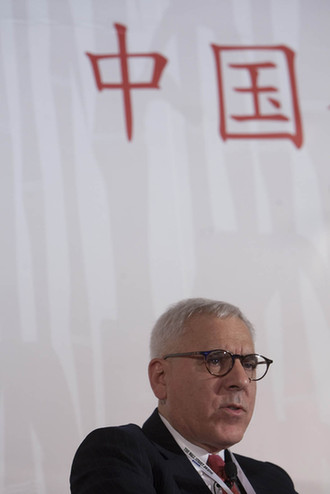Business
GEB lifts yuan-based funds
(China Daily)
Updated: 2010-12-09 15:02
 |
Large Medium Small |
 |
|
David Rubenstein, co-founder and managing director |
Red-hot Growth Enterprise Board drives interest in domestic capital
SHANGHAI - Riding on the sizzling performance of China's Growth Enterprise Board (GEB), yuan-denominated funds further consolidated their strength in the domestic venture capital (VC) and private equity (PE) markets outdoing their US dollar counterparts in the first 11 months of 2010.
Among the 148 VC funds raised for investments in China from January to November, 137, or 92.5 percent, were local currency funds, according to figures compiled by market research firm Zero2IPO Group on Wednesday.
The yuan-denominated funds raised a capital equivalent of $6.2 billion during the same period, making up 61.4 percent of the total.
The amount of capital raised in local currency surpassed that raised in foreign currencies in 2009 for the first time because of overseas venture capitalists' cautionary moves during the economic woes, snapping the decade-long dominance of foreign-currencies-denominated funds in China's VC market.
PE funds braced for a similar scenario to VC funds in the first 11 months. Of the 74 newly founded PE funds, 64, or 86.5 percent, were raised in local currency, Zero2IPO said.
"Local currency funds' outstanding performance this year is largely attributed to the GEB's strong upswing, which boosted venture capitalists' investment enthusiasm in China," said Liu Zhou, founding partner and chairman of Shenzhen Fortune Venture Capital Co, which has 3 billion yuan ($450 million) under management and helped three of the first batch of 28 firms listed on the newly-launched GEB last October.
The exceptionally high price-earnings (P/E) ratios on the GEB has led to an investment spree for VC/PE funds and provided effective exit channels with high returns for investors, said Ni Zhengdong, president of Zero2IPO Group.
The average return on VC/PE investments on the GEB stood at 11.59 times, compared with a return of 5.91 times on foreign stock markets.
Looking forward, industry experts projected explosive development in yuan-denominated VC/PE funds, fueling China's economic expansion and local companies' added willingness for domestic listing for better gains.
"The domestic stock market will become the major destination for Chinese enterprises to float shares before the nation's capital market matures," said Shen Nanpeng, founding managing partner of Sequoia Capital China, which manages dollar-denominated funds worth $2 billion and local currency funds worth 4 billion yuan.
"The size of the VC/PE industry in China is on track to reach 1,000 billion yuan over the next decade," said Zhao Linghuan, chief executive officer of Hony Capital, which initiated the country's earliest yuan-denominated fund, worth 5 billion yuan in 2008.
He said the yuan's increasing role in international financial systems will make the local currency funds more attractive on the global stage.
However, along with the growing capital amount in the industry come ballooning concerns about a possible asset bubble in the GEB and an increased speculative sentiment among VC/PE investors.
"Such a high P/E ratio on the GEB, which reached 67 times, will go down when current supply and demand imbalances on the board are gradually eased," said Li Wanshou, president of Shenzhen Capital Group Co.
As investors flock to industry, making the sector a fierce battlefield, more VC/PE funds have to seek companies in niche markets and the low-tier cities for survival, Feng Tao, president of NewMargin Ventures warned, adding that such growth will dissipate. "The high P/E ratio will return to normal in three to four years."